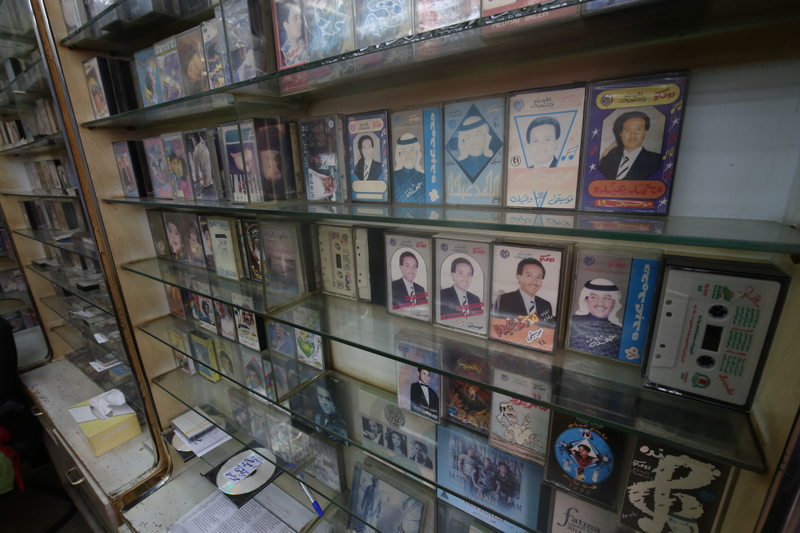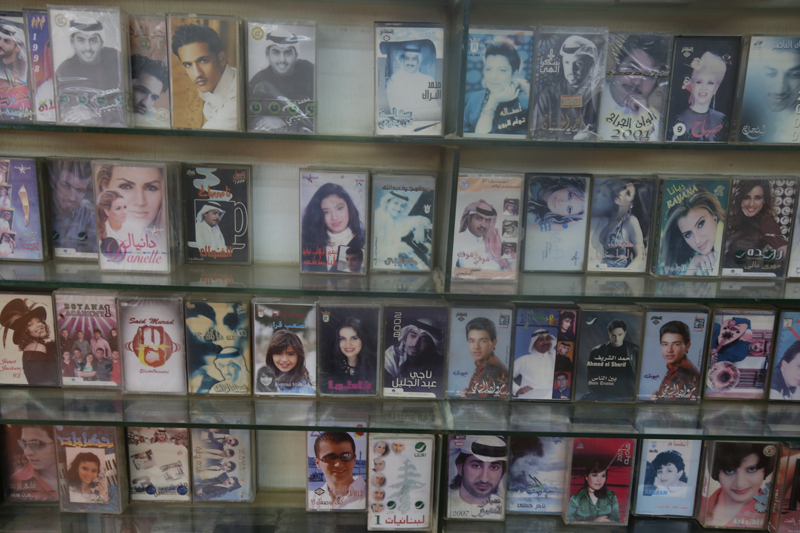

By Nawara Fattahova
Modern technology has killed numerous industries, and music recording is one of them. All the stores that I know from my childhood have disappeared, as they don't have any customers anymore. It is hard to find a shop selling cassettes and CDs these days, and many people believe such shops do not even exist anymore. When I asked my friends whether they knew about any music or video recording shops, they made fun of me, questioning who would buy these things in this digital era.
From the seven cassette shops I knew, I only found one shop that has survived - Ajmal Al Demeera. Entering the small shop located in Salmiya next to Barayeh Salem brought back nostalgic memories from childhood - the times when we bought music albums or recorded special collections, as there was no Internet.
Ajmal Al Demeera opened 45 years ago. "This shop was the main sales point for many singers' albums in the past who became popular. Since the beginning, our shop was well-known for selling folk music from private parties and recording birthday parties, weddings and other private concerts. It was and is still functioning as an archive for many old songs, including Kuwaiti folk music," Abu Ahmad, the owner of Ajmal Al Demeera, told Kuwait Times.
I wanted to know how this shop was still surviving. Are there customers who still buy cassettes or CDs? "Yes - those who have older vehicles with cassette players. Also, those who have gramophones at home seek old records. Before the cassette there was something called a cartridge, and players may still be present in some classic vehicles. I'm in constant contact with these clients," stressed Abu Ahmad.
"We have special musical parties recorded exclusively for us, which are not available online. We have some old rare songs that are not available on the Internet, and many people like them. Kuwait was always known for these special folk parties and even the most popular Egyptian singer - the late Um Kulthoum - came to Kuwait and participated in one of these folk parties, and she was wearing a traditional Kuwaiti dress," Abu Ahmad said.
"CDs started replacing cassettes during the early 2000s, especially since the voice quality was better than cassettes. Automakers hastened this transformation by replacing cassette players with CD players that were smaller in size," he pointed out.
So are there companies that supply to this shop? "Manufacturing companies can only make a minimum of 10,000 copies of a cassette, and this is impossible to sell nowadays. So companies stopped recording cassettes and even CDs. Now when I have the last copy of a certain album, I don't sell it," said Abu Ahmad.
Ajmal Al Demeera can transfer songs and videos from cassettes to a memory stick to preserve rare or artistic works. "Kuwaitis who travelled to Europe for extended vacations drove long distances there. They used to have an entire suitcase full of cassettes to listen to Kuwaiti songs, but now it's much easier as they simply carry one or two flash drives," concluded Abu Ahmad.





